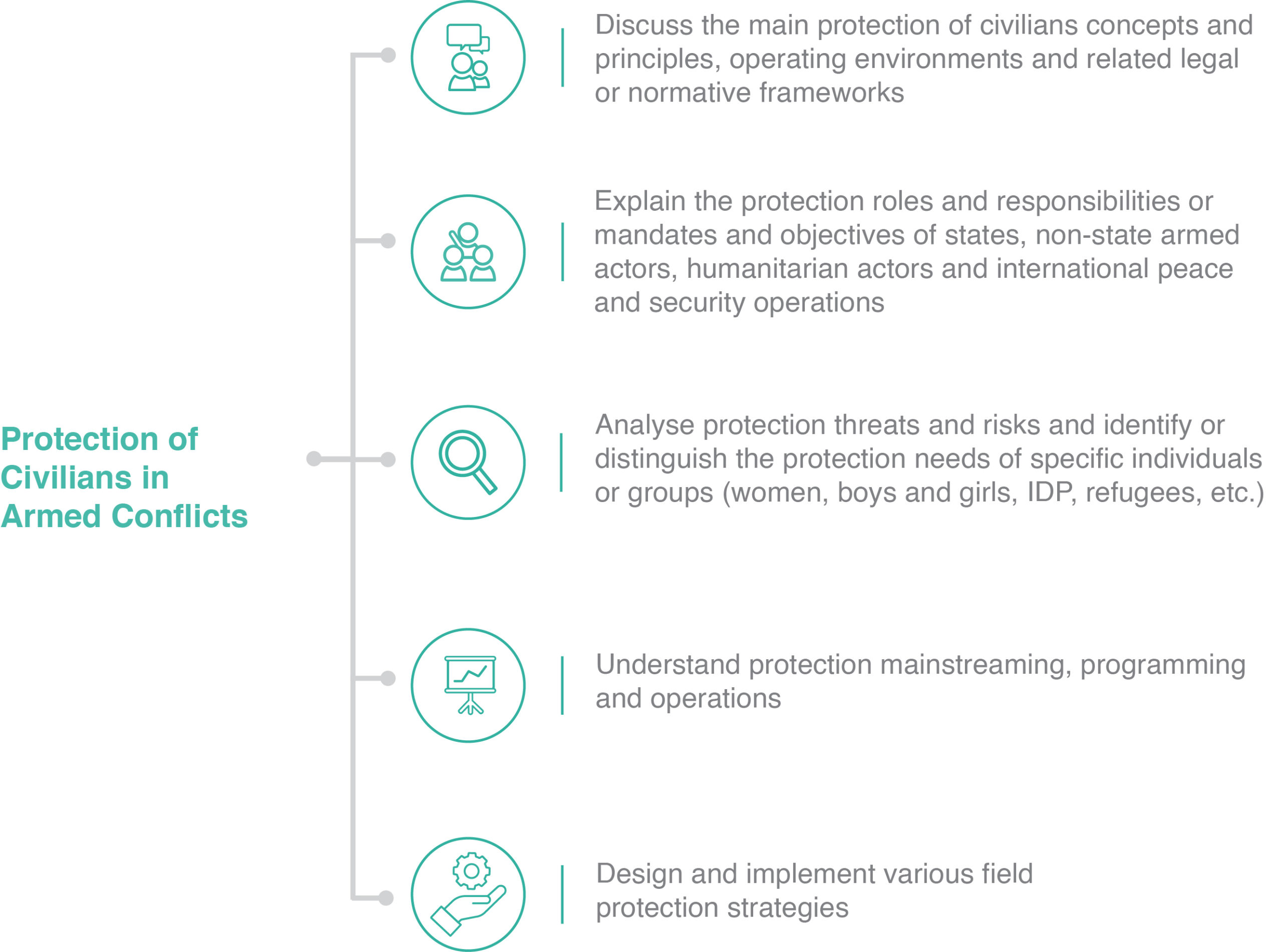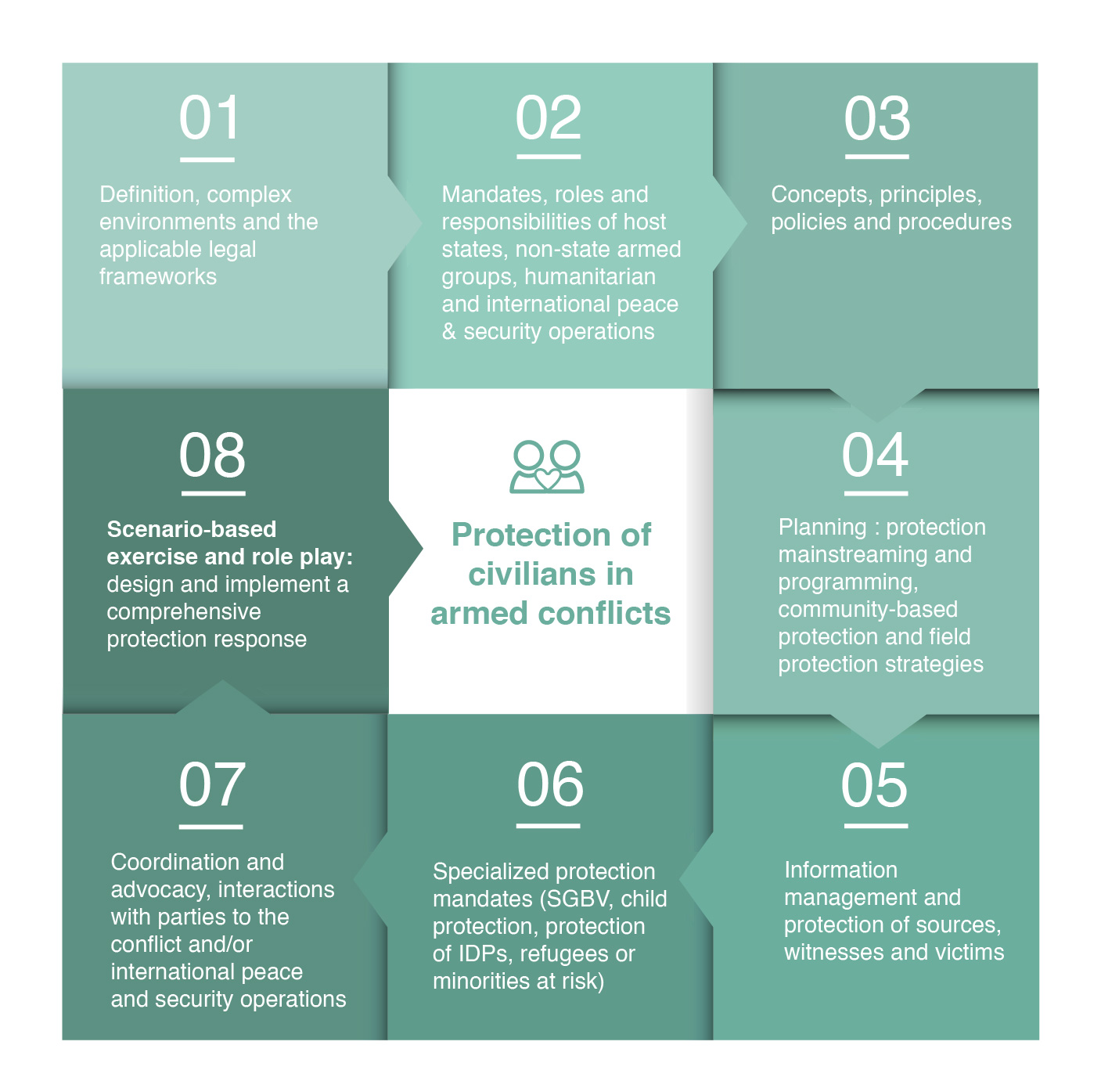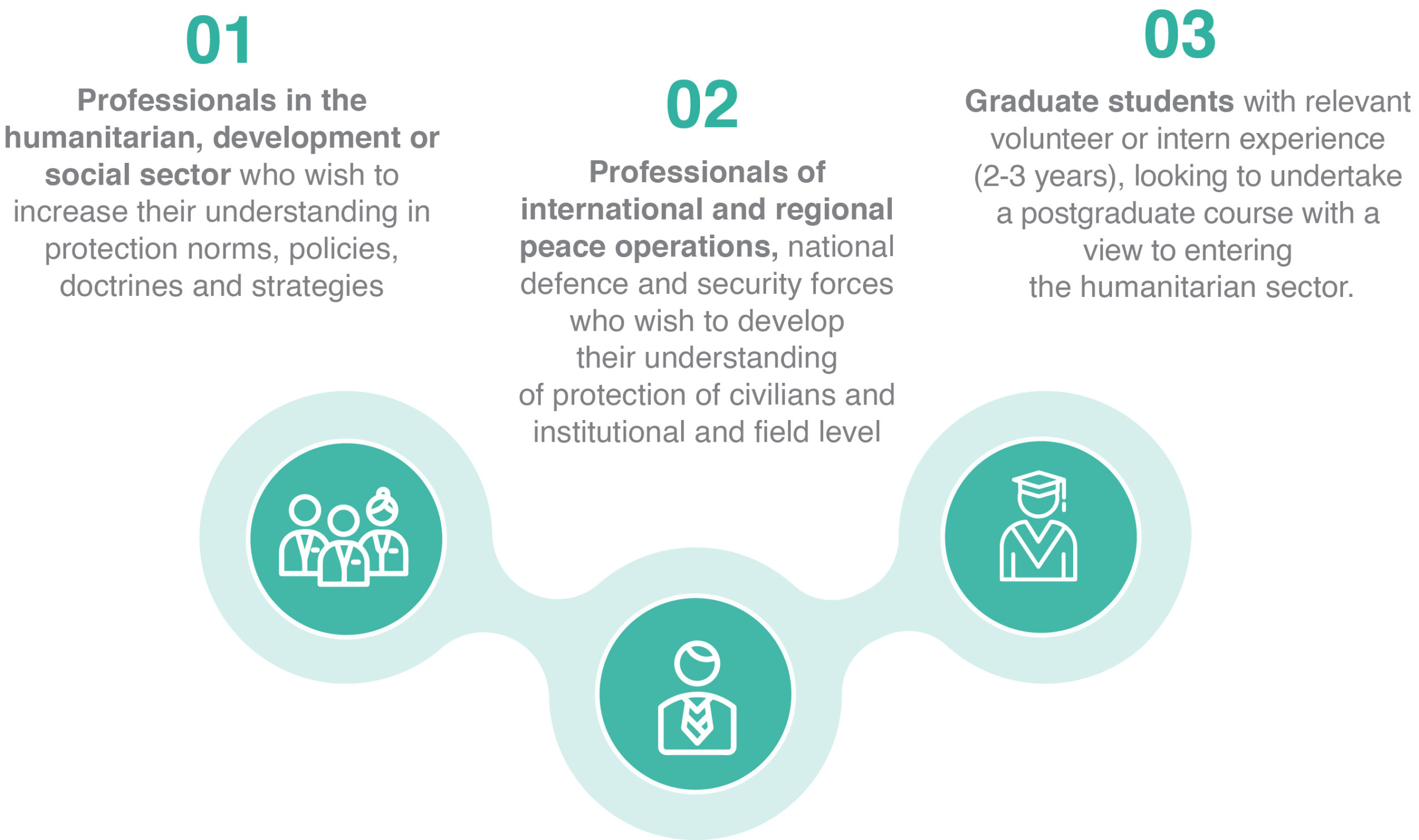Protection of Civilians in Armed Conflicts
The aim of the course is to provide a general introduction to the protection of civilians, with a focus on conflict and post-conflict environments. It provides insight into both theory and practical realities and applies critical thinking on concepts, principles and professional practices most common amongst protection actors in humanitarian or peace operations.
Read the most recent blog by course director Baptiste Martin to learn more about him and this course.
- Application Deadline 10 August 2025
-
1 – 12 September 2025
- Two weeks
- Online
- English
- 2 ECTS (certification awarded upon successful completion)
-
Full price: CHF 1'700
Partner rate (ICRC, MSF): CHF 1'360 (20% discount)
Special Rate: CHF 850. Available exclusively to nationals or staff from local/national NGOs, CBOs, government, INGOs, or IOs in low/middle-income countries (OECD DAC list) with salaries aligned to local living costs. Proof required.
Admission requirements:
- A Bachelor’s degree or equivalent from a Swiss or foreign university;
- At least two years of relevant professional experience;
- Excellent command of English (see below)
Documents required:
- CV (Resume)
- Cover letter (explaining what is the reason why you apply for this course and how will the acquired skills help you in your career)
- Employer’s funding agreement, if applicable
- Highest educational qualification obtained
- Work certificate or official document of your current job position
- Proof of English language competence to be dated less than 2 years (see details below)
- Portrait photo (ID format)
- Scanned copy of the passport
Language Requirements
The minimum required English level is B2. Providing a language certificate is mandatory, except in the following cases:
- If you are a native English speaker, please provide a copy of your passport as proof.
- You have been studying in English for at least three years: please provide a certificate from your institution, your transcript or your diploma.
- If you have worked for at least five years in English with MSF or ICRC, please provide a copy of the English test you have undertaken internally with your employer.
Recognized Tests and Scores:
-
- Cambridge English First (FCE) 160-179
- Cambridge English Preliminary (PET) 160-170
- B2 Business Vantage
- IELTS 5.5-6
- TOEFL iBT 72-94
- TOEIC Listening & Reading 785
- TOEIC Speaking & Writing 310
- PTE Geneval Level 3
- PTE Academic 59-75
- Duolingo : 110
- EF SET (CEFR) : B2
More information about the admission process is available on our application page.
“I had an amazing experience at the Geneva Center of Humanitarian Studies. I’m grateful for that incredible educational experience. The diversity of modules really broadened and probably transformed in a way my thinking. The actual projects and assignments we did during the course taught me a lot about humanitarian activities.
It was a beautiful challenge for me, juggling my business activity and meeting deadlines. However, I believe it allowed me to reshape my attitude towards humanitarianism while starting my own Foundation.
Aside from a new perspective and fresh inspiration from the wonderful participants besides me, the course gave me valuable insights into humanitarian aid, thanks to my professors’ expertise and experience.
The course was well-structured, and the lecturers provided all kinds of resources to consolidate knowledge. They were happy to help with clarifying any information. A great advantage might have been the staff’s professionalism, who often were eager to support me even in the evenings. I was able to build authentic and deep connections with other members. My main focus and goal are to continue my studies at the school, hopefully, next year!”
Robert Sadowski, Philanthropist and CEO of Sawa Logistics (course participant, 2022)





Designation: Lecturer (ESC Protection of Civilians in Armed Conflicts)